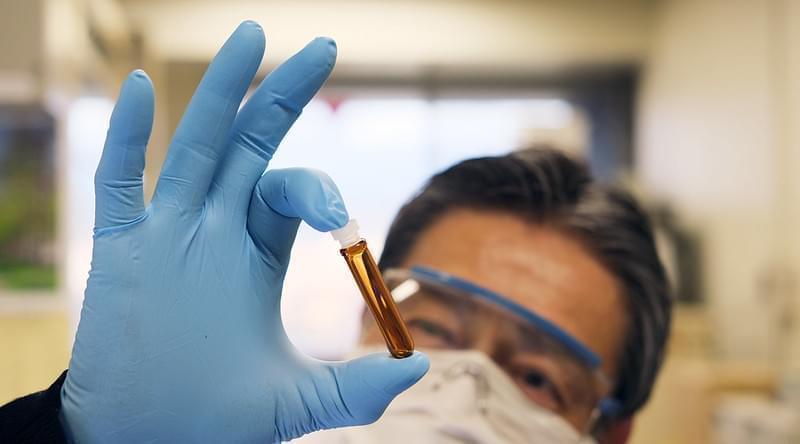The subject of vaccine distribution is an intricate tapestry woven with ethical considerations, public health priorities, and societal equity. Within the context of Bahá’í teachings, the question of “Who Should Get a Vaccine When?” transcends mere logistics; it delves into the realms of moral obligation, communal responsibility, and the universal principle of unity. This article will elucidate the Bahá’í perspective on vaccine distribution, exploring essential teachings that underscore ethical decision-making and equitable access.
Understanding Bahá’í Principles of Justice and Equity
At the heart of Bahá’í teachings lies the principle of justice, which mandates the equitable treatment of all individuals. The Bahá’í Faith emphasizes that justice is a vital cornerstone for the establishment of a harmonious society. When considering the allocation of vaccines, it follows that ethical frameworks must prioritize the welfare of the most vulnerable populations. This includes individuals who are at greater risk of severe illness due to underlying health conditions, elderly persons, and frontline workers who are exposed to higher levels of contagion.
Prioritization in Vaccine Distribution
In line with Bahá’í teachings, a tiered approach to vaccination prioritization can be established. The first tier should encompass those individuals whose health conditions predispose them to severe disease, thus reflecting the principle of prioritizing the most defenseless members of society. Following this, essential workers—including healthcare providers, emergency responders, and educators—must also take precedence. Their role in maintaining public health and safety is irrefutable.
As the vaccine supply expands, it is crucial to ensure that marginalized communities, which often face systemic barriers to healthcare access, are brought into the fold. The Bahá’í principle of unity underscores the significance of eradicating disparities and fostering a society where the wellbeing of each individual is considered paramount.
Global Citizenship and Collective Responsibility
Another foundational tenet of the Bahá’í Faith is the concept of global citizenship. In a world increasingly interconnected, vaccine distribution must be perceived through the lens of collective responsibility. This perspective urges nations and communities to collaborate and share resources, ensuring that vaccines reach even the most distant corners of the earth. The Bahá’í teachings advocate for a global approach, where affluent nations must aid those with fewer resources, thus affirming a commitment to universal healthcare as a fundamental human right.
The Role of Consultation in Ethical Decision-making
The process of consultation is critically important in Bahá’í practice, which promotes collaborative decision-making. In the context of vaccination ethics, stakeholders—including healthcare professionals, community leaders, and affected populations—should engage in meaningful dialogue. Through consultation, diverse perspectives can converge to formulate a distribution strategy that respects individual concerns while addressing societal needs.
This participatory model furthers transparency and inclusivity, fostering trust in public health initiatives. The Bahá’í approach to consultation encourages the identification of shared objectives, leading to solutions that prioritize the common good. Thus, aligning the principles of justice and collective responsibility becomes attainable through thoughtful discourse.
Addressing Misinformation and Promoting Informed Consent
The Bahá’í Faith emphasizes the pursuit of knowledge and the importance of informed decision-making. In the landscape of vaccine distribution, addressing misinformation emerges as a critical ethical obligation. Communities must be equipped with accurate information regarding vaccine efficacy and safety to foster informed consent among individuals.
Informed consent is not merely an individual right; it is a communal duty. As followers of the Bahá’í Faith engage with their communities, they must be proactive in dispelling myths and providing evidence-based information about vaccination. This effort furthers the collective understanding of healthcare and enhances the public’s resolve to participate in vaccination campaigns.
Fostering a Culture of Care
Bahá’í teachings emphasize the interconnectedness of humanity, advocating for a culture that prioritizes compassion and empathy. By fostering an atmosphere of care, communities can cultivate trust in preventive measures such as vaccination. Empathy allows individuals to recognize the dilemmas faced by their fellow community members, creating an environment where people are more inclined to support and participate in vaccination efforts.
Health campaigns that highlight stories of individuals impacted by vaccine-preventable diseases can reinforce the value of vaccination as a communal commitment. Engaging narratives can humanize the statistics, making the ethical choice of vaccination relatable and actionable within the community context.
A Convergence of Science and Spirituality
The Bahá’í Faith posits a harmonious relationship between science and religion, each complementing the other in the quest for truth. Vaccinology is a scientific endeavor grounded in empirical evidence, yet it is also a moral imperative that carries spiritual dimensions. The act of vaccination can be viewed as a manifestation of a sincere commitment to safeguarding the sanctity of life. By framing vaccination within a spiritual context, individuals may embrace it as a divine obligation, leading to greater acceptance and participation.
Conclusion: A Bahá’í Ethical Framework for Vaccine Distribution
In conclusion, the Bahá’í teachings provide a profound ethical framework for addressing the pressing question of vaccine distribution. By anchoring the discourse in principles of justice, collective responsibility, and consultation, followers of the Bahá’í Faith can advocate for an equitable approach to vaccine allocation—one that prioritizes vulnerability and fosters unity amidst diversity. Through the pursuit of knowledge and the promotion of a culture of care, communities can navigate the complexities of vaccine distribution with ethical clarity and compassion, thereby contributing to the overarching objective of the Bahá’í Faith: the advancement of humanity as a unified whole.
